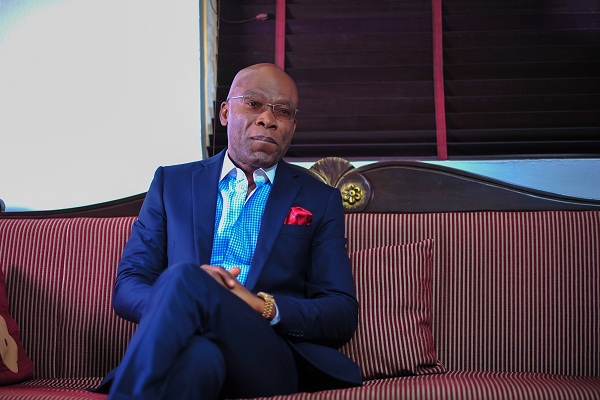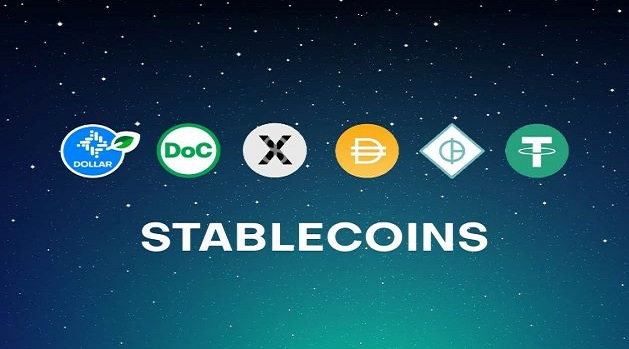E-Business
How Nigeria can Turn Almajiris to Digital Millionaires – Ekeh, Zinox Boss

Leo Stan Ekeh, serial digital entrepreneur and chairman of Zinox Group said that Nigeria can turn the poor, nomadic children popularly called Almajiri into millionaires, employers of labour or even employable citizens if a digital solution is applied to address their peculiar plight.

Leo Stan Ekeh
Ekeh, who delivered an impassioned and workable solutions to the age-long Almajiri issue which government appears yet to find a fitting solution to, spoke as one of the panellists at the Africa Independent Television (AIT) Virtual Town Hall Forum with the theme: The Economic Implications of the New Normal Post-Covid-19 – Anticipated Revolution in Digital Economy, Business Re-Engineering, Government, Trade and Effects on Global Economic Recovery.
Speaking on the impact of COVID-19, Ekeh said one of the major classes of Nigerians negatively affected by the pandemic were the Almajiri who have been tossed from state to state like articles of trade nobody wanted to buy.
A 2014 UNICEF report estimated that there are 9.5 million Almajiri children in Nigeria, which accounted for 72 per cent of the nation’s out-of-school children.
Nigeria is estimated to currently harbour between 13.2 million and 15 million out-of-school children, most of them in the North.
However, Ekeh held that with a digital approach, the potential in these Almajiri that nobody wanted to have anything to do with, can be converted to treasures of gold in the vastly growing digital economy because they are young, brilliant with huge doses of energy.
‘‘I had the privilege of engaging with some of them in Lagos and Abuja. They sound like glorious messengers and have enhanced psychology of begging which, if retrained, could make them best sales persons of the second quarter of this century. We must not abandon them.
“Among these Almajiris, there are smart people whom we can turn to coders (software Application developers) if they are fast tracked under conducive environment with quality welfare program that influences them psychologically to anticipate a wealthy future.
‘‘They are Nigerians on the street and they feel the power of wealth around them but are handicapped because of their circumstances and place of birth. We cannot abandon them.
“The world needs about one million coders yearly and through coding, they can become millionaires and employers of labour. They don’t need to go to the university or secondary school.
‘‘All they need is a special finishing school for about six years where they would be turned to nerds and that will mark the end of poverty in their lives and in their families,” Ekeh said.
‘‘The nation and their states must provide for them, else they shall provide for themselves to survive like others, and it could negatively impact on the society from generation to generation. If we can turn waste to productive use why not human beings created by God?’’
Ekeh, who likened the COVID-19 pandemic to a war, affirmed that the best way to win a war is to anticipate it, stressing that in life, “you must be prepared to win a war before the war begins.”
He emphasised that Nigeria was not prepared for the COVID-19 war, hence the seemingly difficult struggle to deal with it.
Further, he explained that the sudden rush for e-learning in the country was what he had anticipated 15 years ago but added that the Nigerian government did not buy the proposal to make e-learning a life style among the people, noting that COVID-19 has validated his assertion that without digital technology as a way of life and doing business, a nation cannot be truly independent or sovereign in the 21st century.
He warned that companies and organisations including those in the public sector that failed to take advantage of COVID-19 realities to scale up their technologies as necessary tools in the workplace will either suffer huge loss or go into extinction.
“Post COVID-19, a lot will change; a lot of companies will die. We are witnessing huge disruption with digital solutions which have taken the form of technologies worth millions of naira invested to provide teleconferencing as we used to know it. Today, it’s Zoom. That’s disruption and such incidents will continue to define mankind.”
The Zinox boss, who is credited with pioneering a series of innovative firsts in the Nigerian technology sector, insisted that Nigeria must see opportunities inherent in the post COVID-19 economy and take advantage of them.
“I see infinite possibilities and opportunities arising from the COVID-19 pandemic. One of such was that, instead of importing face masks from China or anywhere, the government ought to have deliberately engaged Nigerians tailors, put them in school halls, give them electricity.
“They already have their machines. By the time we create such clusters in different states, we would have locally produced face masks that would serve 200 million people and that would translate to millions of naira for the tailors and indirectly for the government.
“The same tailors can transit to making school uniforms, under wears, ties, bed sheets and pillow cases, designer dresses etc., after the pandemic rather than having some schools import their uniforms from Asia and Europe,” he said.
Ekeh,a global advisor to renowned technology giants, Microsoft and the first to pioneer e-commerce in Africa when he launched BuyRight Africa.com, regretted that the Federal Government lost an opportunity to help grow e-commerce when it failed to initially clearly delineate e-commerce workers as persons on essential duty and e-commerce as essential service during the lockdown.
He cited the example of Amazon which, through the support of the United States government went a long way in helping Americans observe social distancing and keeping many employed even during the lockdown.
The serial digital entrepreneur added that e-commerce is a very cost-intensive venture, noting that e-commerce companies in Nigeria such as Konga are bearing huge losses in view of the complicated and exorbitant applications which drive the business and their status as heavy employers of labour.
Nevertheless, Ekeh insists that despite the lost opportunity, e-commerce remains the future of Nigeria and Africa in terms of jobs and wealth creation.
The only difference between the success recorded here and in other climes, he disclosed, was the institutional support received by players in the sector.
E-Business
Chams Carves Out Subsidiary to Support Africa’s Digital Transformation

Chams Holding Company Plc, (Chams Holdco), digital payments and verification firm, has created a new subsidiary which is expected to strengthen the push for Africa’s digital transformation.

The creation of the new subsidiary, ChamsCorp Plc, which took effect from February 1, was made known in a filing to the Nigerian Exchange Limited , according to an announcement.
Chams said that the new subsidiary, which is its 5th, will give a new dimension to its more than 40 years of work in building the digital ecosystem not only in Nigeria, but across the continent and the rest of the world.
The newly created company will focus on three major aspects, namely the manufacturing of digital devices and development of digital infrastructure and services; data center design, construction and operations, and the development and implementation of AI infrastructure and intelligent systems.
It will also contribute to its parent company’s digital ID, digital verification, and trust services offering.
“For nearly four decades, we’ve enabled trust in transactions and identity. Now, we go furthe”
Chams is expanding into AI, data centre infrastructure, and intelligent systems, building the backbone for Africa’s digital transformation,” the company wrote in a LinkedIn post.
“We are not just participating in the future. We are engineering it,” the message added.
According to the Chams announcement, a decision of its Board of Directors appointed members of the pioneer board of ChamsCorp Plc, with renowned banker Mohammed Bashir Yunusa designated as Chairman.
He is described as a well-known finance expert who specializes in deal structuring, corporate and retail finance, business strategy, digital transformation, and Islamic Finance and Banking.
With more than 10 years of experience in the financial services industry, Yunusa currently serves as head of Consumer and Digital Banking for Non-Interest Banking Retail at Sterling Bank Nigeria, and will also serve as a non-executive director on the board.
“Chamscorp is designed to take our most ambitious ideas to market at speed and scale. As Africa’s digital economy evolves, we are focused on delivering transformative solutions that empower governments, businesses, and citizens alike,” Femi Oyenuga, CEO, Chams, commented on the development.
Chams has over the years played a major role in contributing to Nigeria’s digital ID ecosystem development to facilitate access to financial services.
In 2023, the company Group Chairman publicly stated that in providing such digital services to the Nigerian government, it had incurred debts estimated at $100 million and were planning to change their business model as a result.
E-Business
Nigeria, South Africa Drive Stablecoin Spending in Africa

Africa has emerged as the global frontrunner in stablecoin adoption, with Nigeria and South Africa leading the charge with the fastest adoption rate, as transactions surge across the continent.

This is according to the Stablecoin Utility Report, compiled by YouGov on behalf of fintech firm BVNK.
The study, conducted in partnership with Coinbase and Artemis, surveyed over 4 600 early adopters and crypto-natives in 15 countries across five continents.
It shows people are turning to stablecoins to move money more quickly, securely and affordably – and how this shift in behaviour is becoming a worldwide trend beyond its roots in the Global South.
Stablecoin adoption is accelerating particularly rapidly across Africa in 2026, driven by currency volatility, high inflation and the need for cheaper, faster cross-border payments, it finds.
The Stablecoin Utility Report shows that 79% of African respondents hold stablecoins − the highest ownership rate globally − while 76% say they intend to acquire them in the near future.
Nigeria and SA lead the continent in everyday stablecoin spending, highlighting a shift from holding digital dollars as a store of value, to actively using them for commerce.
The appetite to be paid in stablecoins is even stronger: 95% expressed interest in receiving income via dollar-pegged digital assets, whether for salaries, freelance work or cross-border services, according to the study.
Anthony Yim, co-founder and CEO of crypto research firm Artemis, explains: “We’re experiencing a significant behavioural shift in the way people are using stablecoins.
“Crypto natives and early adopters are fully on board with stablecoins, using them to pay and be paid. This is driving mainstream, global adoption – stablecoin supply has increased 500% over the past five years. Alongside the passage of multiple legislation initiatives in numerous countries, it’s clear we’re experiencing a tipping point.”
From hedge to household spending
Unlike in some developed markets where stablecoins are viewed primarily as a payments upgrade, African users are deploying them as practical financial tools. Key use cases include hedging against inflation, facilitating remittances and funding day-to-day purchases.
The report finds that 92% of African respondents say the condition of their national economy directly affects their stablecoin usage − a reflection of currency volatility, capital controls and high remittance costs across several markets.
Africa also recorded the highest likelihood globally (89%) of users adopting stablecoin-linked debit cards, signalling demand for tighter integration between digital assets and traditional payments.
Infrastructure, not ideology
Taken together, the findings reinforce a broader thesis: stablecoins are evolving beyond a payment method into payments infrastructure, states the report.
For individuals, this means receiving income faster and at lower cost. For businesses, it enables borderless treasury operations and supplier payments. For financial platforms, it opens opportunities to embed stablecoin wallets, debit cards and cross-border settlement into core offerings.
This demand for institutional-grade integration is evident globally, with 77% of survey respondents saying they would open a stablecoin wallet if offered by their primary bank or fintech provider.
As adoption deepens in Africa and regulatory frameworks mature in developed markets, the data suggests stablecoins are no longer a niche crypto product − but a structural layer in the future of global money movement, notes BVNK.
E-Business
Kaspersky Reports 15% Growth in Malicious email Attacks in 2025

According to Kaspersky telemetry, almost every second email – 44.99% of global traffic – was spam in 2025. Spam consists not only of unsolicited emails, but can also include various email threats such as scam, phishing and malware.

In 2025, individuals and corporate users encountered over 144 million malicious and potentially unwanted email attachments, representing a 15% increase compared to the previous year figures.
In 2025, APAC had the largest share of email antivirus detections: it reached 30%, followed by Europe with 21%. Next came Latin America (16%) and the Middle East (15%), Russia and CIS (12%) and Africa (6%). As for individual countries, China had the highest rate of malicious and potentially unwanted email attachments, with the share of email antivirus detections of 14%. Russia ranked second (11%), followed by Mexico (8%), Spain (8%) and Turkey (5%).
Email antivirus detections peaked moderately in June, July and November.
Key trends in email spam and phishing
Kaspersky’s annual analysis has also identified several persistent trends in the email spam and phishing threat landscape that are expected to continue into 2026:
- Combination of various communication channels. Attackers lure email users into switching to messengers or calling fraudulent phone numbers. For instance, scam investment mailings may redirect victims to fake websites, where they are asked to provide their contact information, and then cybercriminals will follow up with a phone call.
- Usage of diverse evasion techniques in phishing and malicious emails. Threat actors frequently try to disguise phishing URLs, for example, with the help of link protection services and QR codes. These QR codes are often embedded directly in email bodies or within PDF attachments, which not only conceals phishing links but also encourages users to scan them on mobile devices, potentially exploiting weaker security measures than corporate PCs.
- Mailings exploiting diverse legitimate platforms. For example, Kaspersky experts discovered a fraudulent tactic that abuses OpenAI’s organisation creation and team invitation features to send spam emails from legitimate OpenAI addresses, potentially tricking users into clicking scam links or dialing fraudulent phone numbers. Additionally, a calendar-based phishing scheme, which originated in the late 2010s, resurfaced last year with a focus on corporate users.
- Refining tactics in business email compromise (BEC) attacks. In 2025 attackers attempted to become even more persuasive by incorporating fake forwarded emails into their correspondence. These emails lacked thread-index headers or other headers, making it difficult to verify their legitimacy within an email conversation.
“Email phishing shouldn’t be underestimated. Our report reveals that one in ten business attacks starts with phishing, with a significant proportion being Advanced Persistent Threats (APTs). In 2025, we saw an increase in the sophistication of targeted email attacks. Even the smallest details are meticulously crafted in these malicious campaigns, including the composition of sender addresses and the tailoring of content to real corporate events and processes.
“The commodification of generative AI has significantly amplified this threat, enabling attackers to craft convincing, personalised phishing messages at scale with minimal effort, automatically adapting tone, language and context to specific targets,” comments Roman Dedenok, anti-spam expert at Kaspersky.

 News3 days ago
News3 days agoAfrican Leaders Highlight Africa’s AI Ambitions

 General News3 days ago
General News3 days agoNDPC Orders Probe into Temu over Alleged Data Privacy Breaches

 Telecom2 days ago
Telecom2 days agoTerra Moves to Expand in African Drone Sector, Secures $22m Funding

 Telecom2 days ago
Telecom2 days agoTemu Assures Compliance Amid Nigeria Data Privacy Probe

 Telecom3 days ago
Telecom3 days agoNigeria’s Internet Users Hit 148.2m Amid Data Cost Surge

 Telecom3 days ago
Telecom3 days agoMTN, BUA, Dangote & Other Industry Giants Triumph at NGX Made of Africa Awards

 Telecom3 days ago
Telecom3 days agoX Suffers Global Outage, Millions Barred from Access

 News3 days ago
News3 days agoLG Nigeria Begins Nationwide Search for Oldest Working TV, Rewards Loyalty with AI QNED Upgrade


























